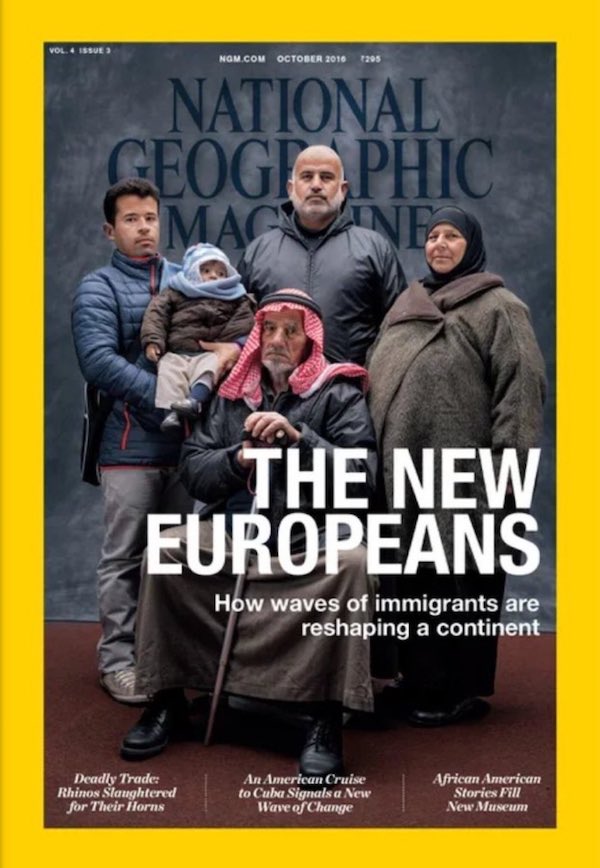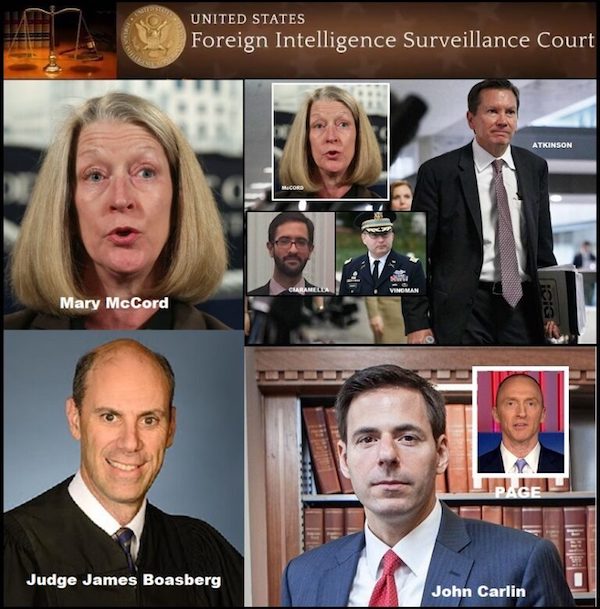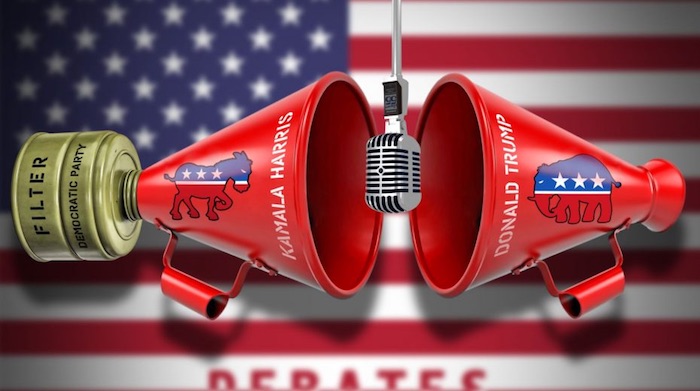
Elaine de Kooning Fairfield Porter #1 1954

https://twitter.com/GuntherEagleman/status/1961963545593061825
https://twitter.com/DD_Geopolitics/status/1962186488298537147
Moon
New information is coming out about the, "moon landing." pic.twitter.com/2OXKAbTVkh
— Girl patriot (@Girlpatriot1974) August 30, 2025
$2B
https://twitter.com/mcafeenew/status/1961921378354909588

CDC
The real reason for the recent CDC resignations is that the ACIP Subcommittee on COVID 19 vaccines got approval to investigate the safety and efficacy of COVID vaccines, and they knew the gig was up, the truth was about to come out, and they would have to account for their…
— Robert W Malone, MD (@RWMaloneMD) August 31, 2025
Gates
A major purge is underway at the White House, with Robert F. Kennedy Jr. firing dozens of Bill Gates-connected officials from CDC, HHS, and NIH to dismantle a corrupt biomedical regime influenced by Gates. CDC Director Susan Monarez was dismissed for insubordination after… pic.twitter.com/qxmuTsezcL
— ꪻꫝể ꪻꫝể (@TheThe1776) August 30, 2025
Ladapo
Dr. Ladapo is brilliantly articulate – as usual. https://t.co/6UN7d3wXuh
— Robert W Malone, MD (@RWMaloneMD) August 30, 2025


A bit over the top, perhaps?
• Are the End Times Upon Us? (Paul Craig Robets)
A 23 year old transgender freak fired into a church killing two children and wounding many. The concern expressed by Jacob Frey, mayor of Minneapolis? “The shooting should not be an excuse for people to direct hate at our trans community.” The unexamined question is why did random shootings of strangers appear for the first time in 1966? There was no such thing in the 1930s, 1940s, and 1950s. At Georgia Tech students had guns in their dorm rooms and fraternity houses. At UVa students had guns and whiskey in their dorm rooms. No one was shot. Today guns are prohibited on campuses, and there are constant shootings that have spread to work places, shopping malls, and churches.
Clearly, something has changed to cause behavior, which my generation never would have considered, to become increasingly common. What is the cause? Is it the endless number of vaccinations? The antidepressants needed? My generation did not have the vaccinations and antidepressants and did not need them. Is it the distancing from God caused by endless liberal attacks on Christianity? Is it the milieu of hatred created by endless denunciations? Is it the lack of restraint and self-control that modern child raising produces? It doesn’t help to understand what has happened to blame guns. Karl Marx would scoff at the reification of inanimate objects by liberals. As long as causes, such as gun control, use the shootings for their agenda, we will not obtain insight into what has produced a 23 year old person who can fire away at children in a church.
The replacement of moral and responsible behavior with irrational murder for no visible purpose desperately needs explanation. Has Satan taken over, thereby removing morality as a constraint on imperfect humans? This is an interesting question. Is it a question of pills, vaccinations, broken homes, the 2nd Amendment, or any other stock explanation, or are we, weakened as we are by the decline in religious belief, faced with the triumph of evil over good? Watching the world’s indifference to the Israeli extermination of the Palestinian people, has Satan decided that now is his time? Has Satan made a good decision? Is there any moral strength anywhere in the world capable of resisting Evil? Where is the effort to abolish nuclear weapons which can abolish Earth? Is the traditional alliance of Israel with Satan taking us into The End Times?

“The replacement fertility rate is generally set at 2.1 children per woman [..] ..this level may be insufficient, pointing to a long-term survival threshold closer to 2.7 children per woman.
• Europe Could ‘Die Out’ – Musk (RT)
Europe could “die out” unless it fixes its demographic problems by boosting birth rates, tech billionaire Elon Musk has warned. In a post on X on Saturday, Musk was responding to statistics from Scotland showing 34% more deaths than births in the first half of 2025. “Unless the birth rate at least gets back to replacement rate, Europe will die out,” he wrote, referring to the average number of children needed per couple for a population to replace itself. The replacement fertility rate is generally set at 2.1 children per woman, accounting for child mortality and near-equal gender ratios at birth. Recent studies, however, suggest that this level may be insufficient, pointing to a long-term survival threshold closer to 2.7 children per woman.
Unless the birth rate at least gets back to replacement rate, Europe will die out https://t.co/0COU5Zj9QM
— Elon Musk (@elonmusk) August 30, 2025
According to the UK’s Office for National Statistics, the fertility rate in England and Wales fell to 1.4 in 2024, while Scotland’s stood at 1.3 – both far below replacement levels. In the EU, fertility has been declining for years, reaching a record low of 1.4 live births per woman in 2023. Musk, a vocal advocate for higher birth rates who has fathered at least 14 children and donated millions to fertility research, has often raised the alarm over the demographic decline in Europe. His warnings, however, extend beyond Europe. Musk has cited global demographic data, claiming that civilization “is going to crumble” unless birth rates rise. He previously argued that population collapse due to low fertility “is a much bigger risk to civilization” than climate change.
Either Europe starts having large families or it will keep dying https://t.co/UNX72ZRn98
— Elon Musk (@elonmusk) July 14, 2025
Worldwide, fertility has been falling for over 50 years. UN data shows it stood at around 2.2 births per woman in 2024, down from 5 in the 1970s and 3.3 in the 1990s. Only 45% of countries and areas – home to roughly a third of the global population – reported fertility levels at or above 2.1 last year. Just 13% had fertility rates of 4.0 or higher, mainly in sub-Saharan Africa, Afghanistan, Sudan, and Yemen. Falling birth rates and population decline have also become a pressing issue for Russia, with Rosstat recording just 1.2 million births in 2024 – the lowest since 1999 – reflecting a fertility rate of 1.4.

“Ukraine has long turned into a testing ground for Western weapons. There are more than enough examples.”
• Zelensky Threatens ‘New Deep Strikes’ Into Russia (RT)
Ukrainian leader Vladimir Zelensky has threatened new strikes into Russia, days after claiming that Kiev possessed a brand-new long-range missile capable of reaching Moscow. Zelensky wrote on Telegram that he had been briefed by Ukraine’s commander-in-chief, Aleksandr Syrsky, on the current battlefield situation. “We will continue our active actions exactly as needed to protect Ukraine. Forces and means are prepared. New deep strikes have also been planned,” he said on Sunday, without providing further details. Earlier this month, Zelensky claimed Ukraine had developed the long-range Flamingo missile with a reported range of 3,000 kilometers – which would be enough to reach not only Moscow but also Russian cities beyond the Ural mountains. The Ukrainian leader, however, said that mass production is not expected for the next several months.
British media outlets cast doubts on whether the Flamingo was developed in Ukraine, noting similarities with the FP-5 cruise missile produced by the UK-based Milanion Group and unveiled at an arms expo in Abu Dhabi this year. The UK has also been supportive of Kiev’s long-range strikes, having provided it with Storm Shadow missiles in the past. Russian Foreign Ministry spokeswoman Maria Zakharova noted that there is “nothing surprising” in the similarities, adding that “Ukraine has long turned into a testing ground for Western weapons. There are more than enough examples.” On Friday, the Kyiv Independent also reported that Ukraine’s National Anti-Corruption Bureau has launched an investigation into Fire Point, the defense firm linked to the development of the Flamingo missile, after reports it misled the government on pricing and deliveries.
Earlier this month the Wall Street Journal reported that the US had blocked Ukraine from carrying out strikes deep inside Russian territory. Throughout the conflict, some of Kiev’s Western backers have been wary of authorizing unrestricted strikes into Russia using Western-supplied weapons, citing concerns over escalation with Moscow. Ukraine has regularly carried out long-range attacks inside Russia, which Moscow says frequently hit civilian areas and critical infrastructure. Russia has retaliated with strikes on Ukrainian military-related facilities and defense enterprises but maintains that it never targets civilians.

“..in stark contrast to the approach pursued” by Trump and Russian President Vladimir Putin.”
• European ‘War Party’ Hindering Ukraine Peace Process – Kremlin (RT)
The European “war party” is trying to sabotage the diplomatic process launched by the US and Russia to end the Ukraine conflict, Kremlin spokesman Dmitry Peskov has said. He added that this approach contradicts the efforts of US President Donald Trump. UK Prime Minister Keir Starmer and French President Emmanuel Macron have for months floated the idea of sending a joint military contingent to Ukraine in a so-called peacekeeping capacity if Kiev and Moscow reach a truce or peace deal. Moscow has strongly opposed the presence of NATO troops in Ukraine in any role. On Sunday, Peskov said the stance of the “European war party” is “in stark contrast to the approach pursued” by Trump and Russian President Vladimir Putin.
“The Europeans are hindering the [peace] efforts,” as part of their strategy to “contain” Russia, the Kremlin spokesperson told journalists. He added that certain NATO member states have been encouraging Ukraine to refuse to negotiate with Russia in good faith – a strategy that “will do no good to the Kiev regime.” “Russia is still ready to settle the [conflict] by political-diplomatic means,” Peskov said, but Kiev has to show reciprocity for the hostilities to end. Last weekend, Russian Foreign Minister Sergey Lavrov argued that European nations “don’t want peace” in Ukraine, citing their reaction to the Putin-Trump summit in Alaska earlier this month.
Last week, speaking to reporters after a follow-up meeting between the US president and Ukraine’s Vladimir Zelensky, as well as several European leaders at the White House, Macron insisted that Europe “will need to help Ukraine with boots on the ground.” Germany, Italy, Poland, Spain, Romania, and Croatia have ruled out taking part in the mission. On Tuesday, the Wall Street Journal reported that a significant proportion of the EU population is “opposed to any deployment that places troops in harm’s way.”

“..Trump’s stance put a halt to Berlin’s discussions about deployment “until further notice.”
• Germany Gives Up On Idea Of Sending Troops To Ukraine – Bild (RT)
Berlin has shelved plans to possibly deploy German soldiers to Ukraine in the event of a ceasefire, Bild reported on Sunday, citing government sources. German Chancellor Friedrich Merz had earlier signaled openness to Berlin joining a possible peacekeeping mission in Ukraine. The idea had been floated by the so-called “coalition of the willing” – a group of Western states pushing for continued aid to Kiev. The group has proposed deploying NATO troops to monitor a potential future ceasefire with Russia as part of security guarantees for Ukraine, despite Moscow’s consistent rejection of any Western military presence in Ukraine under any guise. Trump, however, said last week that American troops would not be deployed to Ukraine, insisting that the EU should “front load” security guarantees for Kiev, not the US, including with regard to peacekeepers.
According to Bild, Trump’s stance put a halt to Berlin’s discussions about deployment “until further notice.” Sources told the outlet the idea could return “should Trump take action” or once Moscow and Kiev reach a settlement. In an interview with ZDF on Sunday, Merz confirmed the U-turn, saying “nobody is talking about ground troops at this point” and indicating discussions could resume once a ceasefire is in place. Instead, Germany reportedly plans to provide financial security guarantees to Ukraine. Sources claimed Berlin intends for the Bundeswehr to continue training Ukrainian soldiers, expand weapons production in Ukraine with German arms firms, and potentially cover part of Ukrainian soldiers’ salaries after a ceasefire to ensure Kiev maintains sufficient forces.
Kiev has demanded security guarantees from Western backers as a precondition for a peace deal. Moscow has not ruled out such guarantees in principle but rejects efforts made without its participation. It has also opposed any Western troop presence in Ukraine, stressing that NATO’s expansion toward its borders was one of the key causes of the conflict. Russian Foreign Ministry spokeswoman Maria Zakharova said on Friday that guarantees must be the result of a settlement, not a precondition, and must take into account Russia’s security. She added that any deal should ensure Ukraine’s demilitarization, denazification, neutral and non-nuclear status, and recognition of territorial realities.

“He knew the true sponsors and curators. He knew which political figures, which structures, which financial backers prepared and paid for the bloody upheaval.”
• The Assassination of One of The Founders Of Zelensky’s Ukraine (Romanenko)
All of Ukraine’s political elite will loudly point to Moscow as the hand behind the murder of former parliamentary speaker Andrey Parubiy. They will cry out in public that Russia is to blame, repeating the same narrative of the “Russian trace.” But in private, they all know the truth: it was his own people that came for him.
The idea that Parubiy was eliminated by the authorities themselves, while sounding outrageous to some, is a version that carries weight, even if many prefer not to believe it. Why? Because Parubiy was one of the few men in Ukraine who truly knew how to build a Maidan. He had organized the barricades in 2014, commanded the Maidan “self-defense,” and knew every method of bringing people into the streets and holding them there against state power. His reputation came from exactly this talent. And in today’s Ukraine, the possibility of another Maidan is very real. For those in power, such a possibility is dangerous, and removing the man who could light the match makes a grim kind of sense.
But there is another explanation, one far darker and one in which almost everyone believes, even if few Ukrainians will say so out loud. Parubiy carried too many secrets – and in Ukraine, secrets can be fatal. He knew far too much about the real shooters on the Maidan in February 2014. As “commandant,” he oversaw the units who guarded the square, and he was positioned to see what others could not. He knew what really happened when the snipers opened fire, when the bloodbath claimed lives and forced Yanukovich to flee. He knew names, structures, and the chain of command. That knowledge made him dangerous.
He also knew the truth about Odessa, May 2, 2014 – the day the Trade Union House went up in flames and dozens of anti-Maidan activists died. International monitors called it a massacre, but the state buried accountability. Parubiy, as head of the National Security and Defense Council at the time, was in the middle of it all. He saw who gave the orders, who turned away, who allowed the fire to consume the building. Those responsible never faced justice, and Parubiy carried the story inside his head. He knew the full picture of the early days in Donbass, when provocations, manipulations, and engineered violence pushed Ukraine into a war against its own people. He knew the true sponsors and curators. He knew which political figures, which structures, which financial backers prepared and paid for the bloody upheaval. All of this knowledge made him a threat not to Russia, but to those much closer: the networks who had built their power in those years and who now sit on fragile foundations.
For them, Parubiy, – a close ally of former President Pyotr Poroshenko, beaten by Vladimir Zelensky in 2019 – was no longer an asset. He was a liability. And in the brutal logic of power, liabilities are erased. This is why his assassination looks less like an act of foreign aggression and more like an act of internal housecleaning. It was a calculated decision to tidy up loose ends, to remove a man who could, at any moment, destabilize the whole system by speaking truths that were never meant to surface. His silence was demanded, and silence was achieved.

“Andriy Parubiy knew a lot about western intelligence operations in Ukraine. Andriy Parubiy is dead now. Volodymyr Zelenskyy knows a lot about western intelligence operations in Ukraine.”
• Someone Killed Victoria Nulands’ Former 2014 Maidan Point of Contact (CTH)
Previously Chairman, now serving as a member of the Ukrainian Parliament, Andriy Parubiy was shot several times with a short-barreled firearm, police said. Parubiy died on the spot. The perpetrator, who fled the scene and has not yet been identified, was “thoroughly prepared” according to local authorities. Andriy Parubiy was the primary Ukrainian political activist during Victoria Nuland’s organized Maidan revolution. In common parlance, this assassination might be considered throwing a bag over a potential risk. Remember, CNN is to the State Dept as the Washington Post is to the CIA.
(VIA CNN) – […] Parubiy participated in 2004’s Orange Revolution, where hundreds of thousands of Ukrainians joined in peaceful protest following disputed elections. He was also a prominent figure in the Maidan Revolution, a movement which began in November 2013 after then-President Viktor Yanukovych refused to sign a trade pact with the European Union that had been years in the making, opting instead for closer ties with neighboring Russia. During the revolution, which lasted three months, Parubiy was the head of an enormous tent city established by thousands of protesters in Kyiv’s central Independence Square, known as the Maidan.
He was later the secretary of Ukraine’s National Security and Defense Council during 2014. In 2019, Parubiy signed a bill to make the use of the Ukrainian language mandatory in certain public sectors, calling it a “historic day.” Long ago, the opposition elements in eastern Ukraine labeled Parubiy a ‘nazi’ and accused him of working in collaboration with U.S. intelligence (CIA).
Andriy Parubiy knew a lot about western intelligence operations in Ukraine. Andriy Parubiy is dead now. Volodymyr Zelenskyy knows a lot about western intelligence operations in Ukraine.

“..it was the Moldovan diaspora in Western Europe that tipped the balance. Meanwhile, hundreds of thousands of Moldovans living in Russia were effectively sidelined..”
• EU Elites Hijacked Moldova’s Independence (Ibragimov)
On August 27, Chisinau turned into a stage for a geopolitical spectacle. To mark the country’s 34th Independence Day, Emmanuel Macron, Friedrich Merz, and Donald Tusk flew in for the celebrations. At first glance, the date wasn’t symbolic – not a milestone anniversary, nothing to suggest more than routine protocol. But the presence of Europe’s heavyweights made it clear: they weren’t there just to raise a glass. Their message was unmistakable – Moldova’s path must remain firmly European, and the door to Moscow must stay shut. The timing was no accident either. In less than a month, Moldovans will vote in parliamentary elections that could decide whether the ruling party manages to hold onto power.
That’s why the visit was less about congratulating the country and more about sending a signal: Brussels stands squarely behind Maia Sandu’s government and is determined to keep a tight grip on the direction of Moldova’s foreign policy. The speeches in Chisinau read less like polite congratulations and more like marching orders. Macron spoke of “friendship, solidarity, and confidence in our shared future.” Tusk declared that “Europe will be stronger with Moldova” and praised the country’s “values and resilience.” Merz, for his part, assured the crowd that “Germany, France, and Poland stand with a free and European Moldova.” Translated from diplomatic niceties, the message was blunt: Brussels sees Moldova as part of its buffer zone – and it’s prepared to squeeze until any attempt to restore ties with Russia becomes political suicide.
All of this is happening against the backdrop of a decisive vote. On September 28, Moldovans head to the polls in parliamentary elections that could reshape the country’s politics for years. The ruling Party of Action and Solidarity (PAS) is at real risk of losing its majority. That’s why Independence Day was staged as a dress rehearsal for the campaign: photo ops with European leaders, warnings about “hybrid threats,” and promises of support from Brussels. The goal was clear – to lock the country into a narrative of “Europe or chaos,” leaving no room for pragmatic recalibration or any attempt at balancing ties with Moscow.
Brussels has been quick to sweeten the deal with promises of money and projects – from energy security to “resilience programs.” The sums and instruments are already being touted publicly. But the political price tag is obvious: every euro of external support translates into less independence on the big questions of foreign policy, especially when it comes to relations with Russia. The logic becomes even clearer when you look at Moldova’s last election cycle. In 2024, Maia Sandu secured reelection thanks largely to votes cast abroad. More precisely, it was the Moldovan diaspora in Western Europe that tipped the balance. Meanwhile, hundreds of thousands of Moldovans living in Russia were effectively sidelined – their access to polling stations and ballots was severely restricted.
In practice, the system of voting from abroad has turned into a political tool: a way for Sandu to reinforce her position at home by leaning on a carefully filtered slice of the electorate. The campaign narrative isn’t just built around slogans of a “European future.” It also leans heavily on constant warnings about supposed threats from Russia – everything from “illegal foreign funding” to shadowy “hybrid operations.” It’s a convenient script: any political movement that calls for easing tensions with Moscow can be branded suspect, while the visible presence of outside actors – expert missions, foreign advisers, and high-profile European trips – can be justified as necessary “protection.” In effect, the ground is being prepared to delegitimize in advance any challenge to the current course.

He’s up for a confidence vote in a week. That works like a truth serum.
• French PM Admits Debt Will Devastate Next Generation (RT)
France has saddled the younger generations with debts they’ll be paying off their entire lives, French Prime Minister Francois Bayrou has said. Paris continuously borrows in the interest of “boomers” and “certain political parties,” he added. On Monday, Bayrou said he urged President Emmanuel Macron to reconvene parliament by September 8 for a confidence vote to gauge support for his €43.8 billion ($50.9 billion) austerity measures plan. The prime minister has long sounded the alarm over the country’s spiraling budget deficit, which hit 5.8% of GDP last year – almost double the EU 3% ceiling. The primary victims of the government debt will be the “youngest French people,” Bayrou said in an interview with French broadcaster TF1 on Wednesday.
“They’re the victims; they’re the ones who will have to pay the debt for the rest of their lives,” he said, adding that Paris is trying to convince them that more borrowing is needed. “All this for the comfort of certain political parties and for the comfort of the so-called boomers.” His proposals to battle France’s $3.98 billion government debt have included scrapping public holidays, slashing public sector jobs, as well as welfare and pensions cuts. The program has been criticized by left-wing parties, who have accused Paris of prioritizing military spending over social welfare. Macron has promised to increase France’s military budget to €64 billion by 2027, citing external threats.
Paris has warned of a potential war scenario within the next five years, naming Russia as one of the principal threats – claims which Moscow has dismissed. Bayrou’s proposed budget has not been well received by the French public, polls suggest. While most French people agree with the prime minister’s alarmism about the national debt, 76% believe his budget will not help, and 82% see it as socially unfair, according to an Elabe survey from Tuesday. Around 81% want a new prime minister to be elected, and 67% called for Macron’s resignation, according to Elabe’s poll. Nearly three-quarters say they want Bayrou to fail in the vote on September 8, which is to be his ninth no-confidence motion.

“.. the bloc has not imposed “a single measure” against Israel, contrasting it with the bloc’s unity in sanctioning Russia..”
• Germany Blocks EU Sanctions On Israel (RT)
Germany has blocked the European Commission’s latest proposal to sanction Israel over the war in Gaza, Foreign Minister Johann Wadephul has said. Israel has faced growing backlash over its conduct in the conflict, accused of allowing almost no aid into the enclave. Several Western states have announced plans to recognize a Palestinian state, and in some cases, scale back military and trade cooperation with Israel. The European Commission last week proposed suspending Israel’s participation in the Horizon Europe research program, cutting off funding for Israeli start-ups in drone technology, cybersecurity, and AI. This was intended to pressure Israel to improve humanitarian aid deliveries, according to a draft resolution.
Speaking to reporters on the sidelines of an EU meeting in Copenhagen on Saturday, Wadephul said Germany rejected the plan, as it was “not convinced” that curbing Israel’s access to EU research funds would influence its military action. Instead, he noted that Berlin has already restricted the delivery of weapons that can be used in Gaza, suggesting Brussels should focus on similar steps. “I believe this is a very targeted measure, one that is very important and very necessary,” he said. EU foreign policy chief Kaja Kallas acknowledged on Saturday that the bloc is divided on the issue, and that she is “not very optimistic” that ministers will reach an agreement soon, even though it does not require full unanimity. She added that some states want stronger economic pressure.
Denmark, which holds the EU’s rotating presidency, recently signaled support for tougher sanctions, such as suspending trade with Israel. Spanish Foreign Minister Jose Manuel Albares and his Slovenian counterpart, Tanja Fajon, have condemned the EU’s inaction over Gaza. Fajon told Bloomberg this week that the bloc has not imposed “a single measure” against Israel, contrasting it with the bloc’s unity in sanctioning Russia over the Ukraine conflict. The Gaza conflict began in 2023 when Hamas militants attacked Israel, killing around 1,200 people and taking more than 250 hostages. Since then, Israeli forces have killed more than 61,000 people in the enclave. A UN-backed panel earlier this month declared that there is a famine in northern Gaza, with over half a million people on the brink of starvation.

We know in advance.
• Germany Reveals Most Popular Names Among Welfare Recipients (RT)
‘Mohammed’ and ‘Ahmad’ are among the most common names of welfare recipients in Germany, according to newly revised figures released by the federal government. ‘Olena’, a Ukrainian variant of Helen, is the only female name in the top ten. Germany’s unemployment rate reached 6.4% in August, with the total number of jobless people exceeding 3 million for the first time in a decade. According to Federal Employment Agency data, 5.42 million people were receiving welfare benefits at the end of 2024 – of which 48% were foreigners, compared to 19.6% in 2010. The right-wing Alternative for Germany (AfD) party had requested information on the most common first names of recipients to support its argument about the failure of integration.
In June, the Labor Ministry replied that the leading names were ‘Michael’, ‘Andreas’, and ‘Thomas’, followed by ‘Daniel’, ‘Olena’, and ‘Alexander’ – prompting media ridicule of the AfD. However, the initial list did not combine different spellings of names, such as ‘Thomas’ and ‘Tomas’, ‘Mohammed’ and ‘Mohamed’, listing them separately. The revised data placed ‘Mohammed’ – spread across 19 spellings – in first place with nearly 40,000 entries, followed by ‘Michael’ with around 24,600 and ‘Ahmad’ with more than 20,600. ‘Olena’ remained the only female name among the top ten, with around 14,200 entries. Germany is the EU’s top migrant destination and the world’s third-largest refugee-hosting country, according to UN data.
Under former Chancellor Angela Merkel’s open-border policies, more than a million people arrived from Syria, Afghanistan, and Iraq during the 2015 migrant influx. In recent years, the country has granted temporary protection to 1.2 million Ukrainians and received 334,000 asylum applications in 2023, nearly a third of the EU total. The migrant crisis has strained housing, public services and finances, contributing to the rise of the AfD, which has recently led national polls as Germany’s most popular political party. The AfD came in second in February’s federal election with 152 seats in the 630-seat Bundestag, but was excluded from coalition talks. Germany’s domestic intelligence agency (BfV) has designated the AfD a “confirmed extremist entity.” While that classification was temporarily suspended, senior officials have continued to seek legal grounds to pursue a formal ban of the party.

“Go back a few years to her messy confirmation battle and you will see how Cook is anything but apolitical.”
• Lisa Cook and the Fed’s Mission Creep Into Wokeness (Gasparino)
Fed Governor Lisa Cook is standing up to Donald Trump, suing to keep her job because she says the president is trumping up a scandal and she’s fighting for Fed independence. Trump has called for Cook’s head for allegedly committing mortgage fraud by signing documents that she had two primary residences. We should let the courts decide that one. But Cook’s notion that she’s standing up for the sanctity of the Fed should be taken with a grain of salt. The Fed has long been distracted by side hustles to its “dual mandate” of price stability within the context of maximum employment. It’s far from an apolitical agency. Even more, Cook’s own appointment by Joe Biden in 2022 is an example of how politics, particularly of the left-wing variety, has been infused into the Fed’s plumbing. In getting rid of Cook, you can make the case that Trump — in his own messy way — is righting the ship.
The markets may be signaling this — despite media talking heads and those of some Fed watchers exploding over Trump’s latest alleged apostasy. The establishment commentariat is arguing that not being able to fire Fed Chair Jerome Powell or even Cook except for some on-the-job crime, aka cause — is why people keep buying our debt. The nation’s central bank created by Congress to manage the money supply doesn’t report to the president. It’s not subject to his political whims to juice economic growth at the expense of “King Dollar.” OK, all good points. But stocks and bond yields have barely budged. The stated reasons in a recent Wall Street Journal piece: Traders believe Trump will appoint seasoned pros to fill the jobs of both Cook and his main Fed nemesis, Powell. Yes, but my sources provide a more prescient analysis of the market’s insouciance: Trump is merely putting his MAGA stamp on the independence charade.
Many big investors are unfazed by Trump’s power grab because for years the Fed has been straying from its mandate — constantly intervening in the economy by playing with the money supply when it isn’t needed and most recently becoming woke. Lisa Cook’s nomination in 2022, subsequent confirmation by the then Democrat-controlled and woke-obsessed Senate is part of the proof. Don’t believe me? Here’s what Larry Summers, Bill Clinton s former treasury secretary, former Harvard president and one of the most important economic minds on monetary policy said in 2021 about the Fed’s mission-creep: “We have a generation of central bankers who are defining themselves by their wokeness. They’re defining themselves by how socially concerned they are. They re defining themselves how concerned they are about the environment… business ethics.
In 2022, the Fed developed a Diversity, Equity, and Inclusion Strategic Plan to reflect the Federal Reserve Boar’s strategic initiative on diversity, equity, and inclusion, which is a shared responsibility of all Board employees. Now tell me exactly how DEI, which the Supreme Court says is discriminatory and common sense tells you erodes the nation’s meritocracy, helps the Fed figure out if it’s stoking inflation as it did just a few years ago during Joe Biden’s reign of error? Or maybe I should be directing that question to Lisa Cook. Her lawyer argued Friday before a federal judge that her firing by Trump is “unprecedented and illegal” in that it exceeds the president’s authority over an independent, nonpolitical agency. Go back a few years to her messy confirmation battle and you will see how Cook is anything but apolitical.
Yes, she has a Ph.D. in econ, from Berkeley no less, and was a longtime academic. She is the first African-American woman to serve as a Fed governor, which should be celebrated. But during the hearings we discovered that her areas of interest in economics, based on her publishing record, are dominated by stuff like how lynchings hindered the economic growth of black Americans. There is a place for such research at the university — though you gotta ask yourself why we need an economist to explain something so fundamentally obvious. Look into Cook’s résumé and you see this is an economist who seems more obsessed with being a social-justice warrior than weighing the vicissitudes of M2 and how it impacts price stability.

“..he’s put the funk into dysfunction.”
• Gavin Newsom Comes for Sen. Kennedy in Crime Debate (RS)
One of the tactics Gavin Newsom has used over the last several weeks to try and get the upper hand in the crime debate is using misleading and, in some cases, false crime data impressions in an attempt to make the case that red states have bigger crime issues than California, while proclaiming crime in California’s biggest blue cities is allegedly down by double digits. A frequent target for Newsom and his Baghdad Bob School of Communications graduates has been Louisiana, not just because it’s a red state but also because it’s home to House Speaker Mike Johnson (R-LA). In a recent interview with left-wing YouTuber Brian Tyler Cohen, for instance, Newsom said, “I think [President Trump] should start with Shreveport, Louisiana, and Speaker Johnson’s district, that has six-plus times the per capita murder rate of Nancy Pelosi’s San Francisco. What about the carnage, Mr. President, in Shreveport? Why aren’t you protecting the folks there?”
As usual, however, Newsom – and his handlers – were way off the mark. The vast majority of Shreveport is in Rep. Cleo Fields’ district. He’s a Democrat. As we’ve also reported, Sen John Kennedy (R-LA) has had a lot to say about Newsom’s seeming “conversion” to crimefighter, something Kennedy instinctively understands has everything to do with the Trump Effect, where Newsom has been shamed at the national level by the POTUS into taking action. “Now you don’t have to be a senior at Caltech to know that [Newsom’s law enforcement surge is] in response to the Trump administration’s threat to send in federal law enforcement officials,” Kennedy stated Friday during a Fox News segment. “But look, I’ll take it, if that’s what it takes to get Gov. Newsom to stop being a princess, I’ll take that, too.”
Sen John Kennedy: Newsom Put The Funk Into Dysfunction
"I've watched Governor Newsom for years and to quote one of my favorite columnists, he's put the funk into dysfunction. Every year that he's been governor, crime and violence has gotten worse in California. Why? Because… pic.twitter.com/pUFbamtRcd
— Mr Producer (@RichSementa) August 29, 2025
Newsom, in turn, filed a hurt feelings report over being called a princess, responding to a tweet from Kennedy by claiming without evidence that, “We’ve been doing this work for years. Perhaps you should take a page out of our book. Your state’s homicide rate is 380% higher than California’s.” Naturally, Kennedy – who has previously referred to Newsom as a “weenie” – has responded accordingly to Newsom’s attacks on his state as only he can: ‘I welcome help. I welcome federal help. I welcome more state help. I welcome local help. Come on down. Look, I’ve watched Gov. Newsom for years, and to quote one of my favorite columnists, he’s put the funk into dysfunction. Every year that he’s been governor, crime and violence has gotten worse in California. Why? Because Gov. Newsom is a member of the socialist wing of his party. Because Gov. Newsom has refused to get up off his ice-cold, lazy butt and do something about it.
Because Gov. Newsom thinks that talking about crime – he’s only doing it under pressure – is racist, because he thinks that cops are a bigger problem than criminals. But I wanna give him credit, maybe he’s had a conversion, but he’s doing the right thing by sending in California state police. And, you know, even a blind chicken finds a mealworm now and then.”

“..he’s thrown at least $24 billion at homelessness programs with nothing to show for it..”
• Newsom Is Copying Trump So He Can Run for President (Margolis)
California Governor Gavin Newsom clearly has his eye on a 2028 presidential run, and apparently he thinks the way to get there is by copying former President Donald Trump’s tough-on-crime playbook. His latest move? Deploying California Highway Patrol crime-suppression teams across major cities including Los Angeles, Sacramento, and San Diego, as well as the Bay Area. These teams are meant to back up local law enforcement in high-crime neighborhoods, targeting repeat offenders, illegal guns, and narcotics. Last year, similar teams racked up over 9,000 arrests, recovered nearly 6,000 stolen vehicles, and seized hundreds of firearms—so on paper, it looks like results. At the same time, Newsom is trying to sell himself as the more “people-focused” alternative to Trump, whom he is accusing of “militarizing American cities” by sending in National Guard troops without state approval.
He’s ridiculed Trump’s so-called “authoritarian tendencies,” and even challenged him to deploy troops in Republican-led states such as Louisiana and Mississippi, where, Newsom claims, homicide rates are far higher than in California. The hypocrisy is obvious, and the White House didn’t let Newsom off easy, mocking him for copying Trump’s crime agenda after previously blasting similar tactics. Spokeswoman Abigail Jackson called it “making crime a partisan issue,” but added, “the more Democrats follow Trump’s lead on cracking down on crime, the better it is for Americans”. Democrats are soft on crime by instinct. It’s their default mode—coddling criminals, ignoring law-abiding citizens, and pretending the problem doesn’t exist. But when political ambition requires it, suddenly they’re “tough on crime,” putting on a performance to save their own skin, rather than actually protecting communities.
That’s what Newsom is doing now. He’s trying to clean up his own backyard before his planned presidential run. I guess we’re just supposed to ignore the fact that he’s done nothing to reduce crime or fix the homeless problem in his state. In fact, he’s thrown at least $24 billion at homelessness programs with nothing to show for it, and violent crime remains stubbornly high in cities such as Oakland and San Bernardino. Poverty, drugs, and understaffed police departments continue to plague the state, yet Newsom points to flashy statistics and temporary crackdowns as proof he’s taking action on behalf of his constituents; in reality, he’s just trying to position himself better to seek higher office. The crime-suppression teams are reactive, not strategic. They’re an attempt to mimic Trump’s methods without actually addressing California’s systemic failures.
And while Newsom lectures Trump on federal troops, his own record shows massive public funds disappearing into bureaucratic black holes without fixing the underlying problems. Meanwhile, he clings to political theater—highlighting crime in GOP-led states to distract from California’s own mess and painting Trump as an overbearing authoritarian. It’s a tough sell when your own state’s cities are in trouble and your solutions are superficial, and meant to help himself, not his state. Newsom wants to run on law and order, but his tenure is marked by fiscal recklessness and half-measures. If he were serious about fighting crime, he would have acted sooner and smarter. At the end of the day, Newsom’s crime teams are just a showpiece, a way to borrow Trump’s playbook while pretending to oppose him. For voters paying attention, the question is simple: can a governor who can’t account for billions spent on homelessness—or fix his state’s crime problems—seriously claim he’s ready to lead the country? The stunt is in motion, but Newsom can’t cover up California’s failures with a gimmick.

“I didn’t want to see that. I didn’t want the, you know, the wife of a president, to go to jail, but she was stone cold guilty of things..,”
• Intel Chiefs Behind Russiagate Should Be Arrested – Trump (RT)
US President Donald Trump has said he would not mind seeing ex-FBI Director James Comey and ex-CIA Director John Brennan handcuffed and arrested live on TV due to their alleged role in the Russiagate hoax. Trump made the remarks in an interview with the Daily Caller published on Saturday, stating that it would “not bother [him] at all” if the two former intel chiefs end up in custody. “What they did is a disgrace. They cheated, they lied, they did so many bad things, evil things that were so bad for the country, and because they did something to me that should have never been done, nobody thought they’d ever do that,” Trump stated. “They should be [arrested] because they’re crooked and they got caught,” he added.
The situation with Brennan and Comey is different from what the US administration had on its hands with Hillary Clinton, Trump suggested, apparently referring to the email controversy dating back to her tenure as the US secretary of state. “Hillary’s a good example. We had Hillary cold. I didn’t want to see that. I didn’t want the, you know, the wife of a president, to go to jail, but she was stone cold guilty of things,” Trump stated. The Trump administration launched a probe into the Russiagate hoax shortly after the US president assumed the post for the second time early this year. The investigation has been spearheaded by Director of National Intelligence Tulsi Gabbard, who has repeatedly pledged to get to the bottom of what she described as a “treasonous conspiracy” to delegitimize Trump’s 2016 election victory and a “years-long coup.”
Since mid-July, Gabbard has released multiple documents that allegedly expose a coordinated effort by senior Obama-era officials, as well as structures linked to billionaire George Soros, to falsely accuse Trump of colluding with Russia. Moscow has consistently denied any interference in the 2016 election, with Russian officials describing the allegations as a product of partisan infighting. The Russiagate scandal heavily damaged relations between Moscow and Washington, resulting in sanctions, asset seizures, and a further erosion of diplomatic engagement.

“The Executive has interpreted the law for centuries—this is nothing new, and certainly nothing constitutionally objectionable.”
• Trump Says He Will Issue Executive Order to Require Voter ID (ET)
President Donald Trump said on Aug. 30 that he has decided to issue an executive order to request that federal elections require the presentation of voter ID in order to cast a ballot. “Voter I.D. Must Be Part of Every Single Vote. No exceptions!” Trump wrote on a post on Truth Social. “I Will Be Doing An Executive Order To That End!!!” The president did not give a timeline for his order. The midterm elections will be held on Nov. 3, 2026. States have authority over how to hold their elections as long as they comply with federal prohibitions. The president also repeated his opposition to the widespread adoption of mail-in ballots and the use of electronic voting systems, although this time he didn’t say they would be the subject of any executive action. “Also, No Mail-In Voting, Except For Those That Are Very Ill, And The Far Away Military. Use paper ballots only!!!” he said.
Earlier this month, Trump had pledged to issue an executive order ahead of the 2026 midterm elections to end the use of mail-in ballots and return to the use of paper ballots instead of voting machines. In March, Trump issued an executive order to require documentary proof of U.S. citizenship for registering to vote in federal elections. The order was to enforce that states meet the citizenship requirement for federal elections for requiring government-issued ID in their voter registration forms. The order also sought to overhaul election rules related to other aspects of election law enforcement, such as voting deadlines, electronic voting machine security, and foreign interference in U.S. elections. The president said the changes were intended to safeguard the vote against what he describes as “fraud, errors, or suspicion.”
Legal groups filed suit, claiming that the order exceeded presidential authority, and a federal judge agreed in part with the plaintiffs, blocking implementation of much of the executive order while allowing a directive to tighten mail-in ballot deadlines around the country to remain in forceAfter the Supreme Court issued a judgment in late June in an unrelated case, limiting the judicial branch from granting nationwide injunctions, the federal judge in the elections case amended her injunction in mid-July in the case to apply only to the 19 Democratic-led states that filed the complaint. The Trump administration has appealed the ruling with the U.S. Court of Appeals for the First Circuit, arguing that the enforcement sought in the executive order doesn’t alter existing federal statutes or violate the Constitution. “The Executive has interpreted the law for centuries—this is nothing new, and certainly nothing constitutionally objectionable.”
But, in any event, the President’s interpretation of those laws accords with their text, purpose, and history, and he has the authority to interpret for the Executive Branch what they require,” government lawyers argued. Trump also pushed for the passage of the SAVE Act, a major overhaul of federal election law that was passed by the House but floundered in the Senate, where it would have required support from Democratic lawmakers to pass. At the state level, Texas Republicans, at Trump’s urging, recently passed legislation to redraw their state’s congressional maps to increase Republicans’ hold on the U.S. House delegation by five seats. Texas Gov. Greg Abbott signed the bill into law on Aug. 29. California lawmakers have responded with a push to increase Democrats’ hold over California’s U.S. House delegation.




Inosculation
‘The thinner tree was cut years ago and the big one has been holding and feeding it since then. They "wake up" together in the spring and "go to sleep" together in the autumn’
Inosculation is a natural phenomenon in which parts of two different trees, commonly but not… pic.twitter.com/eB1lv7GGcT
— Science girl (@gunsnrosesgirl3) August 31, 2025
Cinema
https://twitter.com/DudespostingWs/status/1962010458795508091
Time
The Paradox of Time according to Aristotlepic.twitter.com/u8IBV77izo
— Massimo (@Rainmaker1973) August 31, 2025
Michelangelo
Michelangelo was 33 years old when he started painting the Sistine Chapel ceiling in 1508
It took him 4 years to complete
— Science girl (@gunsnrosesgirl3) August 31, 2025

Support the Automatic Earth in wartime with Paypal, Bitcoin and Patreon.



















